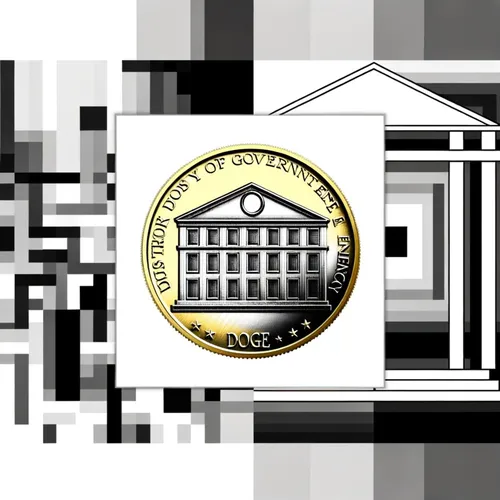Government Launches DOGE Initiative: Blockchain and AI Transform Federal Efficiency with Massive Savings and Tech Innovation
- Author
- Quiet. Please
- Published
- Sat 19 Apr 2025
- Episode Link
- https://www.spreaker.com/episode/government-launches-doge-initiative-blockchain-and-ai-transform-federal-efficiency-with-massive-savings-and-tech-innovation--65635939
Listeners, in the past few months, the concept of government efficiency has taken a surprising turn with the launch of the Department of Government Efficiency, humorously dubbed the "DOGE" initiative by officials drawing inspiration from the meme-fueled Dogecoin cryptocurrency. The President’s directive, made official via executive order in January, aims to overhaul federal operations using lessons and tools from digital currency, blockchain, and artificial intelligence.
This new department has already made headlines by helping agencies like the IRS save an impressive $2 billion simply by eliminating outdated contracts and unused software licenses, all without disrupting operations. The drive is clear: slash bureaucratic bloat, leverage modern tech, and ensure taxpayers see more value for their money.
Industry watchers note that DOGE’s ambitions go beyond merely streamlining paperwork. There’s a growing push to use blockchain—the same technology behind many cryptocurrencies—to improve transparency and speed in distributing government benefits, issuing bonds, and tracking government spending. Recent successes in Hong Kong and Europe, where tokenized bonds are already a reality, show this isn’t just theoretical. Elon Musk’s involvement as an unofficial advisor has fueled even more speculation, especially after his public advocacy for integrating blockchain in federal systems.
Meanwhile, the White House’s pro-crypto stance means the U.S. is not only encouraging widespread digital asset adoption but has also established a Strategic Bitcoin Reserve, consolidating seized cryptocurrency assets to be managed securely by the Treasury. Crypto industry experts believe these moves could set the stage for the federal government to participate actively in the digital economy, modernizing operations and preparing for future financial shifts.
Although critics still question whether the DOGE initiative risks overhyping blockchain’s benefits, the early results point to practical cost savings and a shift in Washington’s mindset. Listeners can expect to see continued innovation—and likely more headlines—as the DOGE agenda tries to turn government from a sluggish bureaucracy into a lean, tech-savvy institution, all while riding the wave of the crypto revolution[1][2][3][4][5].
